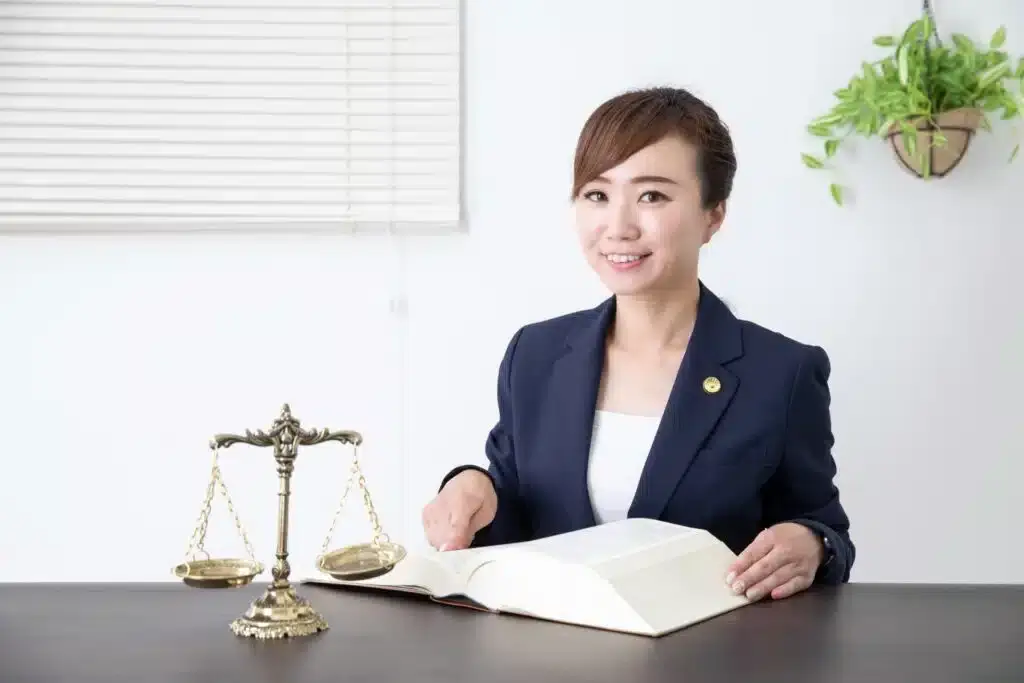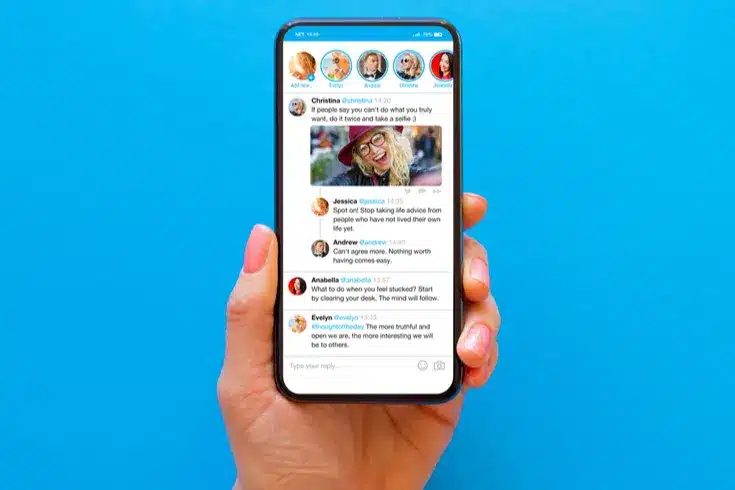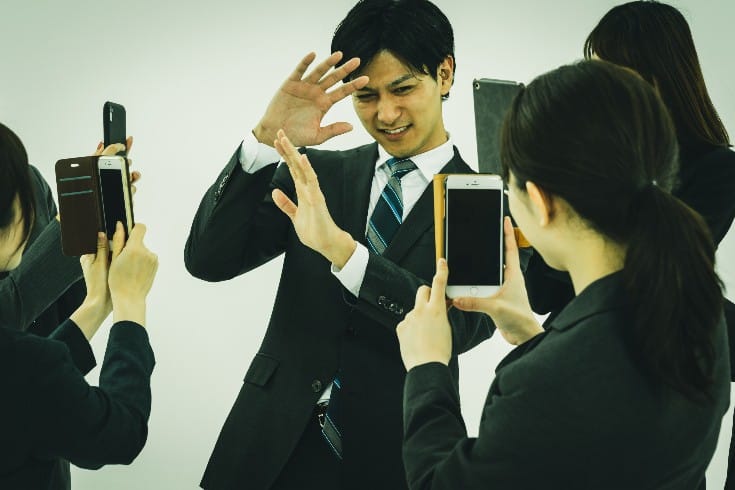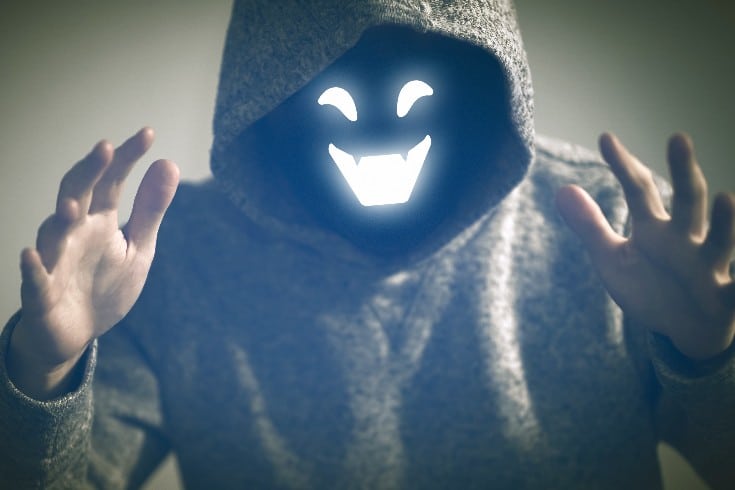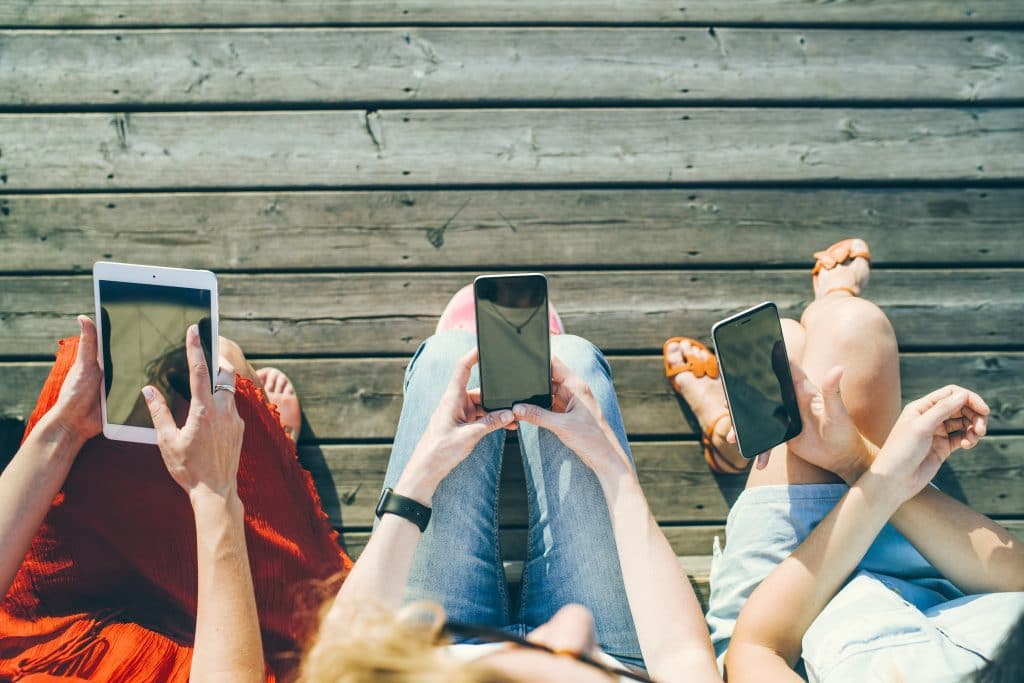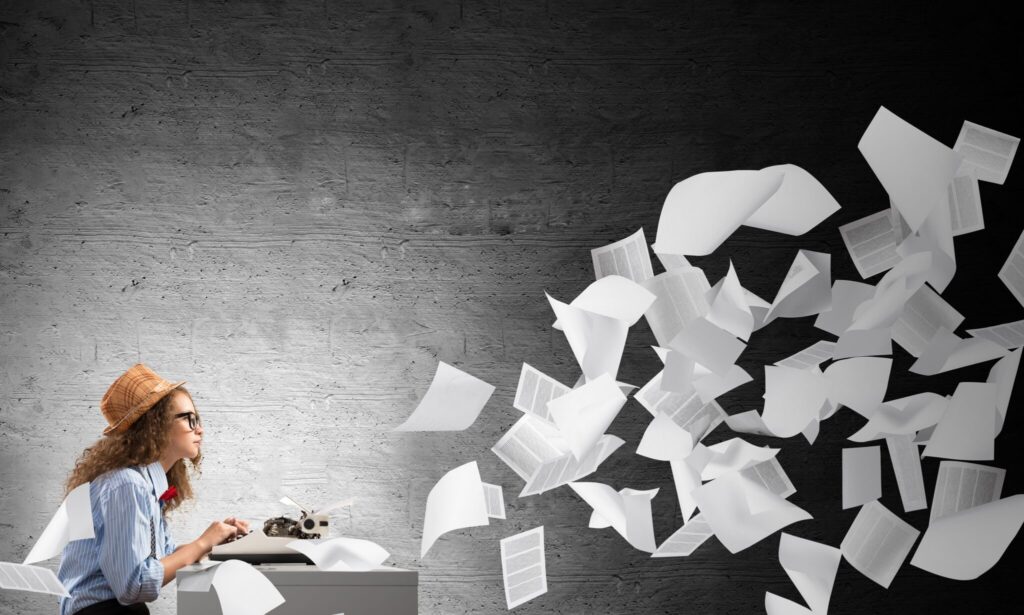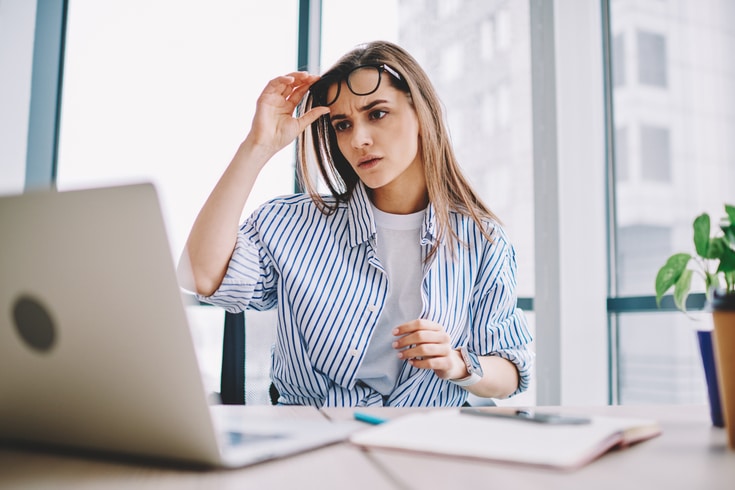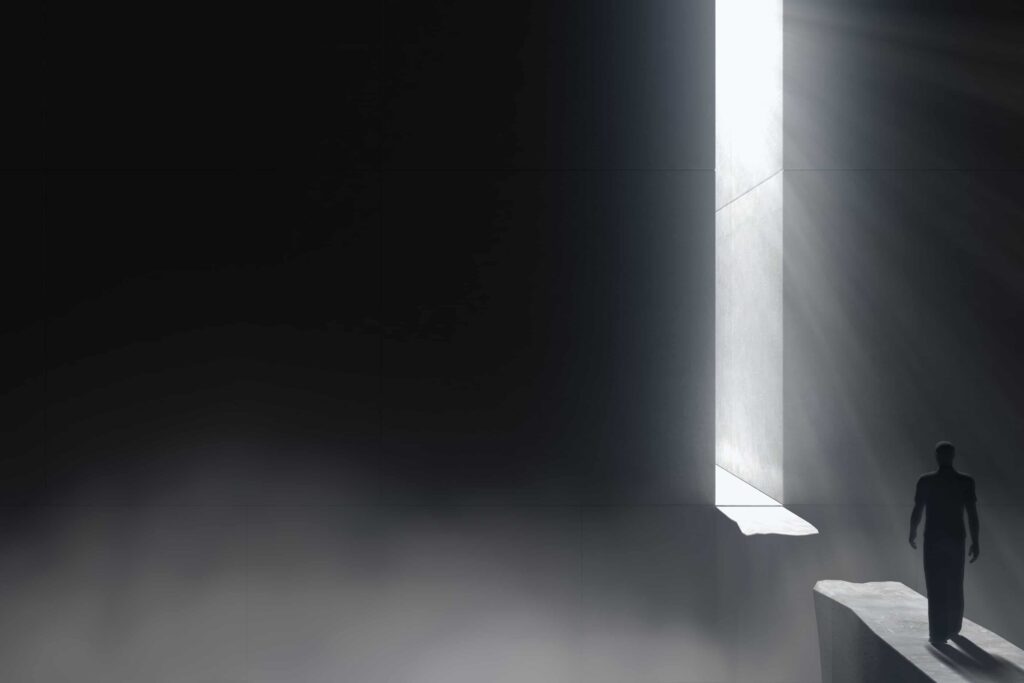Is it a Crime to Take Unauthorized Photos with a Smartphone and Post them on Social Media? An Explanation of the Issue with Case Studies!
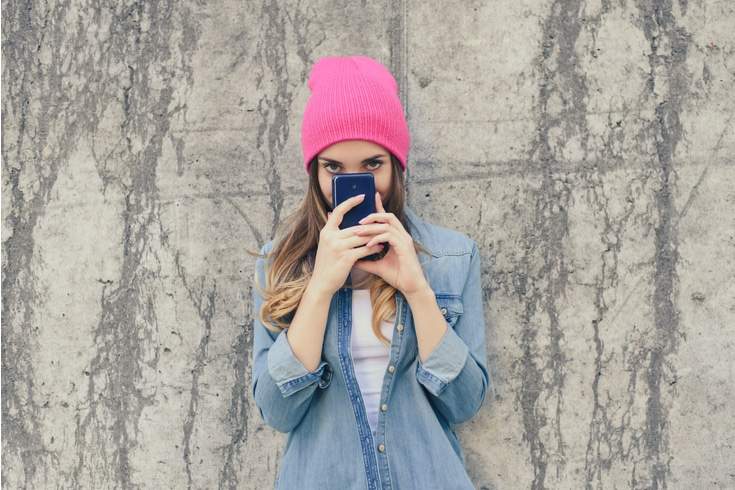
It’s a common sight to see people taking photos of landscapes or meals with their smartphones at travel destinations or restaurants, and then posting them on social media platforms like Twitter and Instagram.
However, if you post photos taken without permission on social media, you may encounter unexpected problems.
In this article, we will discuss the legal issues that can arise when you post images taken without permission on social media using your smartphone.
Cases Where Unauthorized Smartphone Photography Becomes a Legal Issue
Unauthorized photography is not a uniform issue, as the laws and rights that may be violated can vary depending on the subject and location of the photography.
In the following, we will explain the laws and rights that can be problematic in five cases that are particularly prone to issues when unauthorized photos taken with a smartphone are uploaded to social media.
When Other People’s Faces are Captured in the Photo
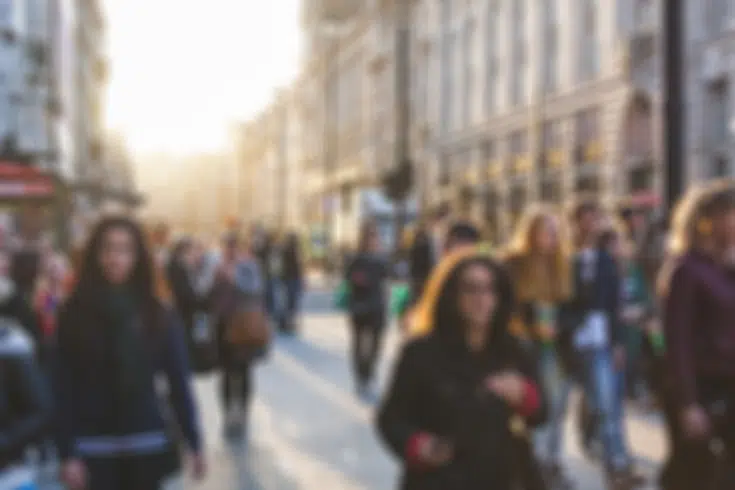
When taking photos at tourist spots and similar places, it’s common for the faces of others to be captured in the shot. This often raises issues related to ‘portrait rights’.
There is no law that explicitly defines ‘portrait rights’, but according to legal precedents, the following are recognized as legally protected:
- The personal interest in not having one’s appearance and the like photographed without reason
- The personal interest in not having photographs of one’s appearance and the like published without reason
In other words, ‘portrait rights’ generally include the following two rights:
- The right not to have one’s appearance and the like photographed without reason
- The right not to have the photographs taken published without reason
However, it’s not always the case that the mere inclusion of someone else’s face in a photo constitutes an infringement of portrait rights.
The Supreme Court has provided the following criteria for determining whether there has been an infringement of portrait rights:
Whether photographing someone’s appearance and the like without their consent constitutes an illegal act under tort law should be determined by considering the photographed person’s social status, the activities of the photographed person, the location of the photograph, the purpose of the photograph, the manner of the photograph, the necessity of the photograph, and whether the infringement of the above-mentioned personal interests of the photographed person exceeds the limits of tolerance in social life.
Also, it is reasonable to understand that a person has a personal interest in not having photographs of their appearance and the like published without reason, and when the photographing of a person’s appearance and the like is deemed illegal, the act of publishing the photograph infringes on the above-mentioned personal interests of the photographed person and should be deemed illegal.
Supreme Court Minor Bench, November 10, 2005 (Heisei 17) (2005), Minshu Vol. 59 No. 9 p. 2428
In other words, even if someone else’s face is captured in a photo, if it’s within the generally acceptable range in social life, the act of taking the photo and uploading it to social media does not constitute an infringement of portrait rights.
For example, it’s normally expected that other people’s faces might be captured in photos taken at popular tourist spots where many people are present. Therefore, even if such photos are taken and uploaded to social media, it’s highly likely that this does not constitute an infringement of portrait rights.
However, caution is needed as there may be a risk of infringing portrait rights depending on the method of photography, such as clearly focusing on someone else or taking photos that can identify individuals.
Therefore, when uploading images with other people in them to social media, it’s a good idea to take precautions such as blurring faces or using stamps to make them unrecognizable.
Also, even if they are your friends, make sure to get their permission before uploading to social media.
While infringing portrait rights is not a crime, it can lead to claims for damages as a civil tort.
Unauthorized Photography in Stores and Hospitals

Even in these cases, if the faces of others are captured in the photo, it can naturally become a problem in relation to portrait rights. In addition, there may be issues related to the right of facility management.
“Facility Management Rights” is not explicitly defined by law, but it is considered a comprehensive management right granted to the owner or manager of a facility, based on the ownership rights under the Civil Code.
Owners are free to use their property within the limits of the law. Therefore, unless there are exceptional cases that constitute an abuse of ownership rights, business operators can, in principle, prohibit photography at their discretion and order those who take unauthorized photos to leave the facility.
Also, even if photography is permitted, it is important to note that posting the photos on social media and other platforms may be prohibited.
Therefore, if you take photos without the permission of the owner or manager in a convenience store, supermarket, or other places where unauthorized photography or posting on social media is prohibited, or if you upload images to social media, it may constitute an infringement of facility management rights and you may be liable for damages as a tort.
Hospitals, in particular, often explicitly prohibit photography due to the need to consider the confidentiality of highly sensitive personal information such as medical records and the privacy of patients.
Unauthorized photography in a hospital not only infringes on the hospital’s facility management rights but also risks violating the privacy of patients, so special caution is required.
Related article: Thorough explanation of privacy rights. What are the three infringement requirements?
While infringement of facility management rights or privacy is not a crime, if you trespass into a hospital for unauthorized photography, you may be charged with the crime of trespassing (Article 130 of the Penal Code), and if you do not leave despite being ordered to do so, you may be charged with the crime of non-exit (Article 130 of the Penal Code).
Also, depending on the method of photography, you may be charged with the crime of forcible obstruction of business (Article 234 of the Penal Code).
When Unauthorized Photos of Celebrities are Taken
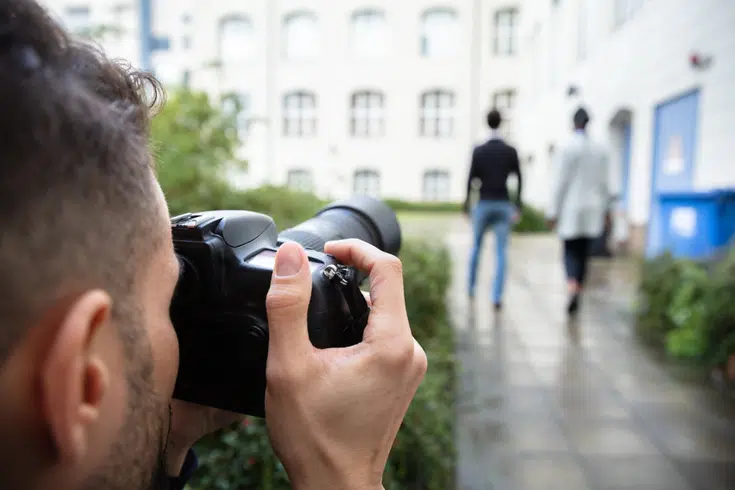
When you spot a celebrity in the street or in a shop, you might be tempted to take a photo.
However, if you upload that photo to social media, it can lead to issues related to not only the infringement of portrait rights, but also publicity rights.
Publicity rights, recognized in case law, are the rights to exclusively utilize the customer-attracting power of one’s likeness.
While similar to portrait rights, the difference lies in that while portrait rights protect personal interests, publicity rights protect economic interests.
The Supreme Court has indicated the following criteria for determining infringement of publicity rights:
Unauthorized use of a likeness, such as ① using the likeness as a product to be appreciated independently, ② attaching the likeness to a product for the purpose of differentiating the product, and ③ using the likeness as an advertisement for a product, is considered to infringe on publicity rights and is illegal under tort law when it is intended solely for the purpose of utilizing the customer-attracting power of the likeness.
Supreme Court Minor Bench, February 2, 2012 (Heisei 24) (Pink Lady Case)
In other words, if you take unauthorized photos of a celebrity’s private life and upload them to social media with the intention of freeriding on the celebrity’s influence for purposes such as attracting customers, it constitutes an infringement of publicity rights.
For example, if a restaurant’s official account uploads a photo without permission to social media with a caption like “Recommended by (celebrity)!”, depending on the way the photo is used, it could be considered an infringement of publicity rights and you could be subject to a claim for damages.
For more detailed information on publicity rights, please refer to the article below.
Related article: When Publicity Rights Arise and When They Do Not
Regarding the relationship with portrait rights, it is generally considered that the scope of infringement of portrait rights for celebrities and other famous people is narrower than for ordinary people, so there may be cases where uploading to social media does not infringe on portrait rights, depending on the way the photo is taken.
However, if a photo reveals information that the person does not want to be known to others, such as a photo that allows the person’s home to be identified, it could be considered an invasion of privacy.
Also, while infringement of publicity rights does not immediately constitute a crime, depending on the way a celebrity’s name or likeness is used, it could fall under the act of misappropriation of well-known product indications under the Unfair Competition Prevention Act (Japanese Unfair Competition Prevention Act), and criminal penalties may be imposed.
Unauthorized Photography of Museum Exhibits and Posting on Social Media
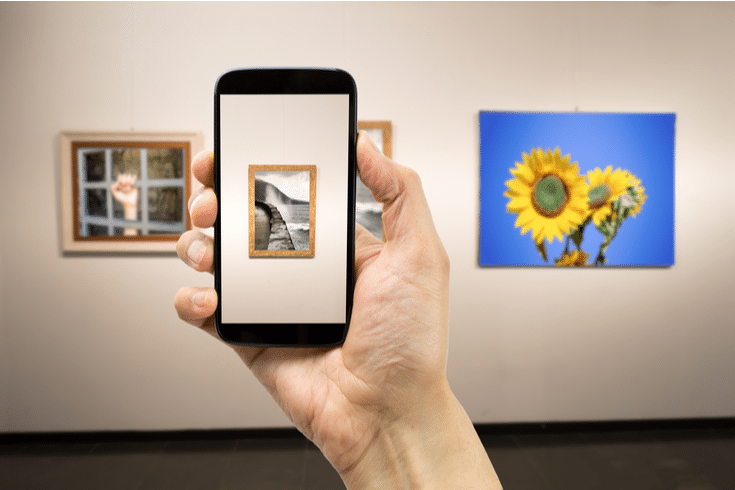
On social media, it is common to see photos of museum exhibits.
When taking photos inside a museum, you must be aware of not only the museum’s facility management rights (discussed later) but also copyright issues.
Artworks displayed in museums, such as paintings, are generally considered “artistic works,” which are one of the representative works explicitly listed in the Japanese Copyright Law.
The Japanese Copyright Law grants the author of a work exclusive rights (collectively referred to as “copyright”) to perform certain actions on the work to protect the author’s rights and interests. It generally prohibits anyone other than the author from performing these actions.
One of these rights is the “right of reproduction,” which is defined in the Japanese Copyright Law as follows:
Reproduction in a tangible form by means of printing, photography, duplication, recording, filming, or other methods
Article 2, Paragraph 1, Item 15 of the Japanese Copyright Law
In other words, unauthorized photography of museum exhibits constitutes “reproduction,” which is generally considered a violation of the right of reproduction.
In addition to the right of reproduction, authors are also granted the “right of public transmission.” Unauthorized posting of photos of copyrighted works on social media could also infringe upon this right.
However, the Japanese Copyright Law allows for exceptions for private use, which does not constitute copyright infringement.
For example, taking photos for personal viewing at home does not infringe on copyright. However, taking photos for the purpose of posting on social media is not considered private use and is generally considered copyright infringement.
Furthermore, copyright infringement is considered an illegal act under civil law and may also be subject to criminal penalties.
However, there is a protection period for copyrighted works. Copyrights expire 70 years after the death of the author.
Therefore, for example, old works such as Van Gogh’s “Sunflowers” are no longer under copyright protection, and you are free to take photos and post them on social media, at least in terms of copyright.
However, even if the copyright has expired, the museum has the right to manage the exhibits. Many museums prohibit photography inside the facility based on their facility management rights.
Therefore, even if unauthorized photography of exhibits does not infringe on copyright, it may infringe on the facility management rights, so caution is necessary.
When You Post Unauthorized Photos of Buildings on Social Media
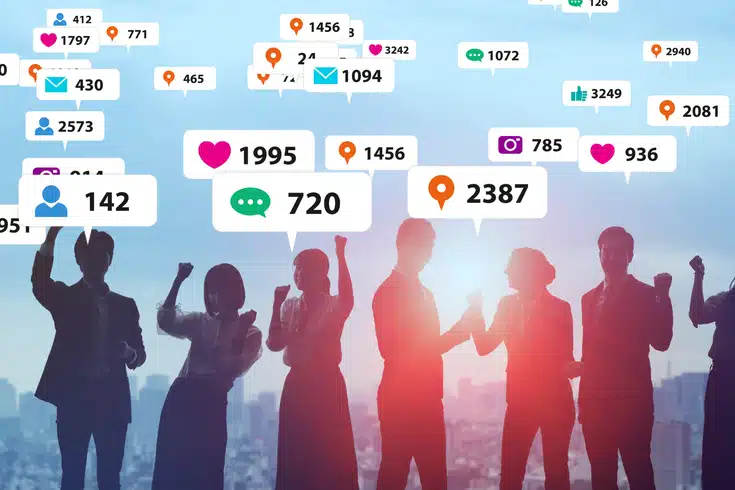
You might take photos of famous buildings and post them on social media. In this case, you must also pay attention to the relationship with copyright.
“Architectural works” are one of the typical works explicitly listed in the Copyright Law, just like works of art.
However, the use of architectural works is widely permitted, except for reproduction by architecture.
(Use of Public Art Works, etc.)
Article 46: Works of art whose original works are permanently installed in outdoor places stipulated in the previous article, or architectural works, can be used by any method, except in the following cases.
2. When an architectural work is reproduced by architecture, or when it is provided to the public by transferring its reproduction.
Japanese Copyright Law Article 46, Paragraph 2
In other words, even if you take unauthorized photos of buildings, it does not constitute copyright infringement, and it is also possible to post them on social media.
However, some buildings have registered their silhouette as a trademark, and if you use photos of such buildings for commercial purposes, there is a risk of infringing trademark rights, so you need to check in advance. For example, Tokyo Tower and Skytree are typical examples.
Please note that criminal penalties are imposed for trademark infringement.
Also, if you take photos from within the premises without permission, there is a risk of infringing the facility management rights of the building owner, and if the building is a private residence, there is also a risk of infringing privacy, so be careful.
Related article: Is it permissible to take and publish photos of other people’s property without permission?
Summary: If you encounter trouble due to unauthorized photography, consult a lawyer
While it’s easy to take photos with your smartphone and upload them to social media with a few simple steps, it’s important to be aware that you are always in close proximity to many laws and rights, as mentioned above.
Especially on the internet, there is a possibility that you may unknowingly commit a crime.
If you have uploaded photos of other people’s faces or buildings without permission on social media, or if such photos have been uploaded, it is advisable to consult a lawyer who is knowledgeable about internet issues as soon as possible.
Introduction to Our Firm’s Measures
Monolith Law Office is a legal office with high expertise in both IT, particularly the Internet, and law. In recent years, overlooking information related to reputational damage and slander spread on the Internet can lead to serious harm. Our firm provides solutions for managing reputational damage and online crises. Details are provided in the article below.
Category: Internet

